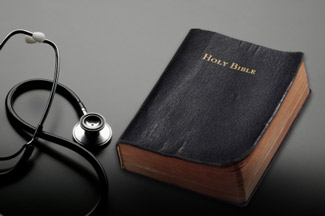
The words ‘religion’ and ‘science’ are not often seen together, and if they are, it can sometimes be in a negative context. Here at Royal Holloway we are lucky enough to be a part of a diverse student population, which inevitably contains religious students studying scientific degrees. We spoke to Nishall Garala, the Religious Affairs Officer for the RHUL Hindu society, to find out more about the implications of the ‘religion versus science’ debate for students.
Hi Nishall, thanks for coming to discuss this with us today! So, to begin: what do you think about the issue of science vs. religion, and the effect this has on religious students studying a scientific degree course?
I don’t think there is a particularly negative perception about science students being religious. Most people understand that religion is more to do with lifestyle, not a students’ degree. I think the biggest aspect of student life affected by religion is more to do with activities than their course of studies – for example, Hindu and Muslim students cannot drink alcohol. This affect things like SU nights, but these are just done in a different way for these students. The university is really good at helping religious students become involved in student life in other ways, no matter what they study.
How do you address the topic of science with students within Hindu society?
We actually value being able to discuss science within the society – it can often help explain complex aspects of religion to students that might be difficult to understand. We also have various talks throughout the year – for example, we have a doctor who is also a monk who comes in to discuss aspects of his life with students. He is a prime example to students how you can be religious and still work in the scientific field. We also discuss the fact that there are aspects of science which are not yet proven, and require faith, and how this can parallel with religion. We really emphasise the way in which science and religion can compliment each other, not work against each other.
How do you make the society welcoming to students who are studying science, who might feel uncomfortable due to the ‘science vs. religion’ debate?
We try to make sure that the society is inclusive of everyone, no matter what you’re studying or what you believe in. We don’t talk about religion or science in a negative way, and try to answer everyone’s questions in a positive way. We work towards finding a common ground, and welcoming everyone.
How do you think religion and science can compliment each other for students in a practical way?
Oh, that’s a hard one. I think it’s mostly about students finding out how science and religion can work together for them. While science can prove certain facts, it can’t explain everything in life – this is where religion can come in. It can also help to explain things in a different way – for example through myths and stories, rather than scientific fact. Both can act as different forms of guidance for various aspects of student life.
What would you say to someone who thinks that religious students can’t or shouldn’t study science, or vice-versa?
I would say, religion is made for man, man is not made for religion. Religion is not there to disagree, with science, it is there to help people stay on the right path. When science can’t explain something, a story based on myths and legends can sometimes help. It can often provide more comfort to people than evidential facts and numbers can, which is important for many students. I think it is sometimes easier to take a story and apply it to life, than it is to apply a scientific principle.
Is there anything else you would like to say about this topic?
I think the most important thing to remember is that science and religion should compliment each other, not work against each other. There is no one side to take in a discussion of this nature – both science and religion can be appreciated in their own right, while working together to help people.
Thanks Nishall!
It was certainly insightful to discuss this issue with a representative of a religious student body. What was clear was that the ‘science versus religion’ debate is not supported with the student community – instead, there is a real emphasis on how the two topics can work together, and even aid each other. It is certainly the most positive way forward, and reveals what an inclusive and open community we are a part of here at Royal Holloway.
